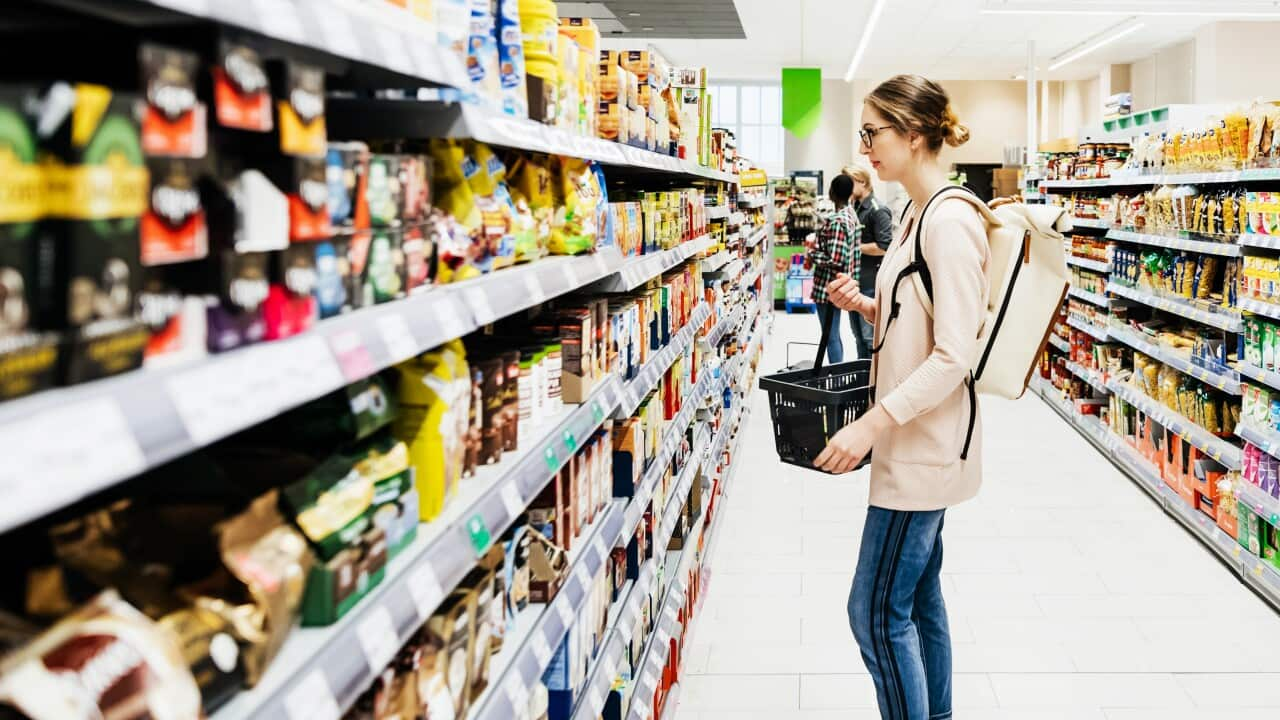If your grocery bill seems to be increasing each month, you're not imagining it.
A new analysis from investment bank UBS has found price rises at Australia's leading supermarkets have hit a new high, outpacing inflation over the last year.
It comes as Australians continue to grapple with a cost of living crisis, with and all on the rise.
So how much are grocery prices actually increasing, what is behind the price hikes, and what do the supermarket giants say?
How much are grocery prices increasing?
UBS Australia's Evidence Lab, which tracked online prices of 60,000 grocery items at Coles and Woolworths, found prices increased by 9.6 per cent in the 12 months to April.

Investment bank UBS has published analysis of food inflation at Coles and Woolworths. Source: SBS News
Woolworths' inflation went from 9.7 per cent in March to 8.7 per cent in April.
In comparison, the Consumer Price Index - which measures price changes in goods and services - hit 7 per cent in the 12 months to March, meaning supermarket price hikes are outpacing inflation.
According to the Australian Bureau of Statistics, inflation for food and non-alcoholic beverages was 8 per cent in that period, down from 9.2 per cent in the December quarter.

Dairy, bread and cereal had high rates of inflation in the 12 months to March 2023. Source: SBS News
"The increasing rate of food inflation is a surprise," the report says.
"We suggest the achievement of a new peak in food inflation (excluding tobacco) is due to ongoing cost pressures on suppliers due to commodities and the domestic supply chain, including labour."
In the 2022 financial year, Coles recorded a net profit of $1.48 billion, while Woolworths recorded a profit of $1.5 billion.
Supermarkets dispute price analysis
The supermarket giants say the UBS analysis does not provide the full context behind their pricing and sales.
A Coles spokesperson told SBS News that the UBS report did not accurately reflect how inflation is calculated and reported.
"UBS’s sample data does not capture our full range of products and does not capture changes in customer buying behaviours which impact our sales volumes and product mix," the spokesperson said.
"This is integral to capturing an accurate reflection of overall supermarket inflation."
The spokesperson also disputed the figures reported by UBS, saying Coles inflation was "significantly lower".
"UBS used the same price tracker for a report ahead of the 3Q23 results and reported Coles inflation at 9 per cent."
"Our official inflation figure was reported significantly lower at 6.2 per cent."
A Woolworths Group spokesperson said the rising grocery costs were mainly due to higher wholesale prices.
"The higher wholesale prices we're paying to suppliers is the primary driver of inflation," the spokesperson said.
"We remain sharply focused on delivering value to our customers and balancing the needs of suppliers."











